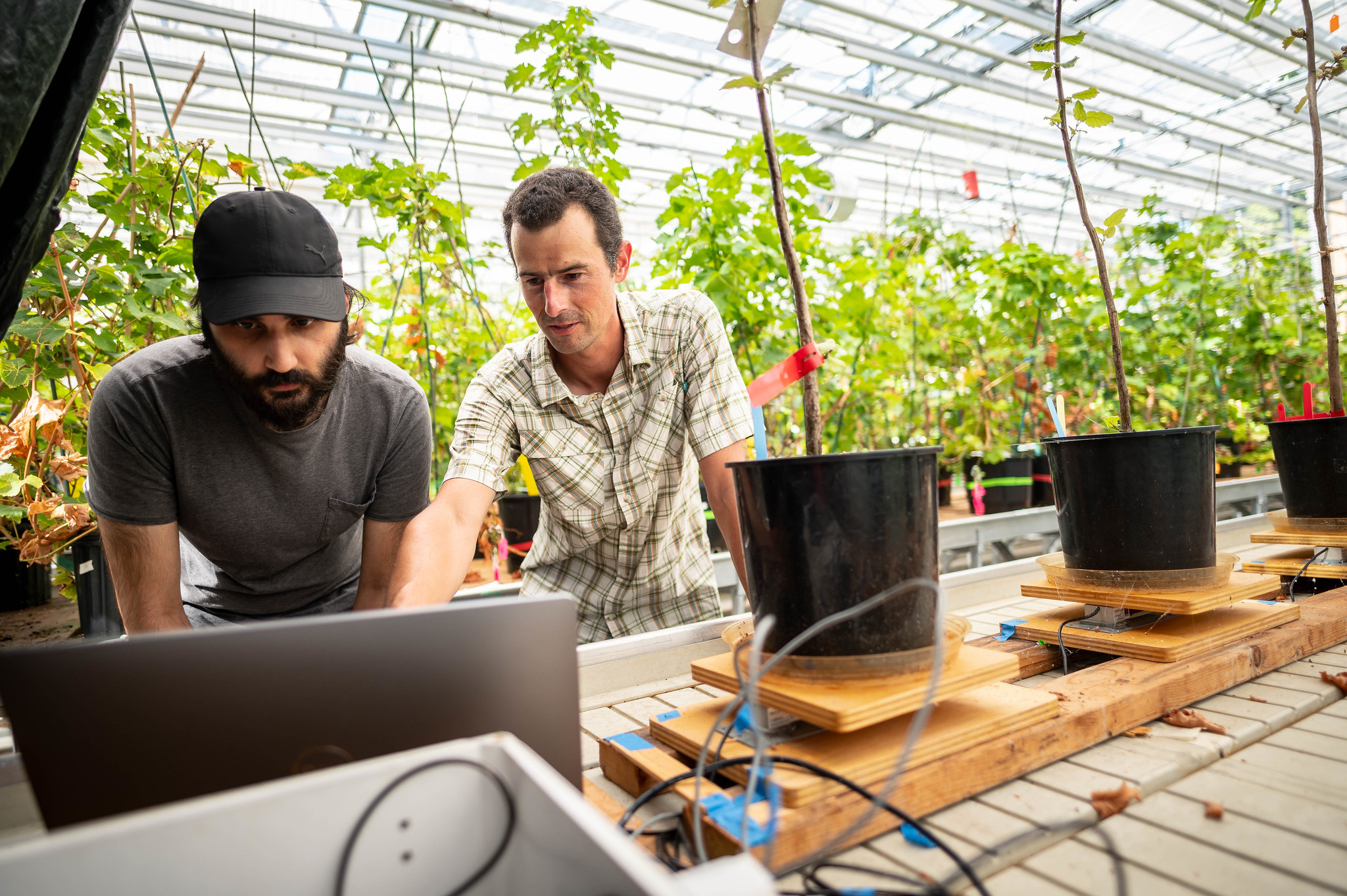Earth Day: Looking at Long-Term Food Production

Thorsten Knipfer and Gopal Sharma
B.C. is facing warmer summers. What impact does this have on our food production?
Plant physiologist Dr. Thorsten Knipfer is researching the true water requirements of perennial plants grown in the region, with a current focus on hazelnuts, the only commercial nut crop grown in B.C. and one that is recovering from a recent occurrence of Eastern Filbert Blight disease.
With drought conditions intensifying during the growing season in B.C. due to lack of precipitation, Dr. Knipfer aims to help hazelnut growers maintain yield and crop quality without wasting irrigation water.
His team is delving into understanding the interaction of water and hazelnut plants by looking inside the plant – monitoring water tensions, water evaporation loss from leaves, and observing the fillings status of cells. High-tech devices and data collection are today’s tools of the trade.
“We are collaborating with BC Hazelnut Growers Association and Verdi, a start-up from UBC that is testing precision agriculture,” says Dr. Knipfer. “With Verdi, we’ll be installing water tracking verification systems using third-party sensors placed in hazelnut fields and custom software for data collection and analysis.”
To start, his lab is partnering with two hazelnut growers in the Fraser Valley to install water tracking systems. In addition, Dr. Knipfer’s team will be installing a precision irrigation system at UBC Totem Field to determine irrigation requirements of hazelnut trees.
“Water is one of our most valuable natural resources and sustainable water management through precision agriculture helps to protect our natural ecosystems through water conservation.”
Thorsten’s research was also featured in the Fall 2022 issue of ReachOut magazine. Read “Drought Resistance in Wine Grapes and Hazelnuts” here.